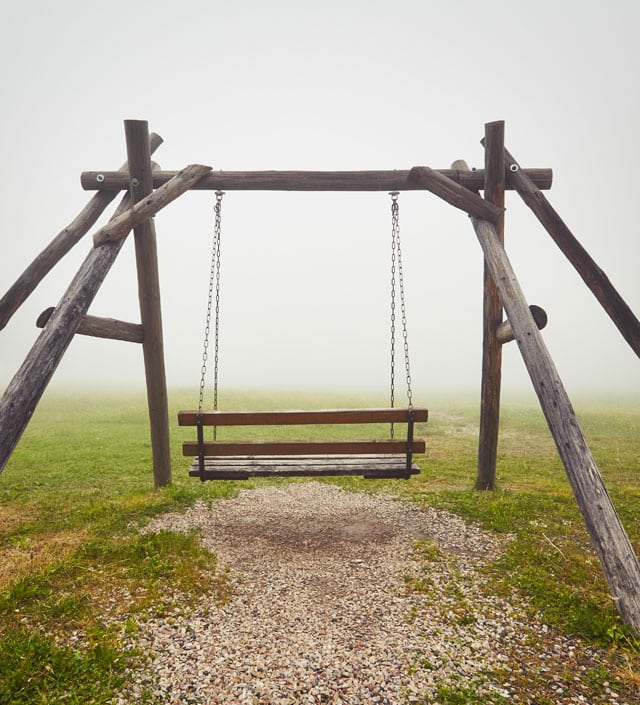In 1966, The Beatles asked us two questions that haunt us to this day.
“Ah, look at all the lonely people,” they sang plaintively in “Eleanor Rigby.” “Where do they all come from? Where do they all belong?”
Humanity still has no simple answers to the questions in the song written by Paul McCartney and John Lennon. But senior citizens and healthcare and planning professionals who work with them would likely not be surprised to learn that McCartney has said in interviews that the character of Eleanor Rigby was inspired by “the old ladies” he used to chat with when he was a kid.
“They had great stories,” McCartney has said. But, he added, some were lonely, especially the one who was the primary model for the character.
Today’s seniors often experience social isolation after retiring, losing a spouse, trying to adjust to living alone and coping with health problems.
Plan for how to stay socially active
That’s why it’s so important for adults to start planning in advance how they will stay socially engaged after retirement and beyond, said Dave Buck, a certified retirement planning coach and founder of the Infinity Lifestyle Design program.
Buck recently conducted an audio webinar, “The Hidden Epidemic of Social Isolation,” on the subject of loneliness after retirement. It was attended by dozens of people who not only asked questions about how they can limit loneliness, but also shared what’s worked for them so far.
According to U.S. Surgeon General Vivek Murthy, the problem of social isolation in the U.S. is “an epidemic of loneliness” that has negative health effects similar to those caused by smoking. He released an advisory urging numerous initiatives to help bring about more social engagement.
According to a report from the National Academics of Sciences, more than one-third of adults aged 45 and older feel lonely. The study also shows that nearly 25% who are 65 and older are socially isolated.
“That means today there are some 14 million in the United States alone who lack basic interaction with other people,” Buck said. “As the population grows older, this number is bound to increase.”
In-person interaction more rewarding than digital
Buck said people need to plan for a retirement lifestyle that involves face-to-face social interaction with people, which is a much more rewarding experience than digital interactions.
“If you’re in a career,” Buck said, “think about your social network and whom you interact with. When you choose to retire, your social network will drop on average 50% or more.” Invest in valued friendships with people at work before you retire because after retirement it can be more difficult to maintain those friendships, he said.
And it’s just as important for people to plan, prior to retirement, how they can also socially engage with other friends after they retire.
Health and financial challenges can create loneliness
Besides retirement, other factors leading to seniors experiencing loneliness include: health problems, transportation challenges, financial difficulties, living alone (27% of adults 60 or older live alone and many spouses outlive spouses by eight years), disability and ageism, Buck said. In addition, retirees taking care of elderly parents can find it difficult to make time to socialize.
Seniors who stay in their homes can sometimes become socially isolated, especially if they live alone. For some, moving to an adult community, in an independent living or assisted-living scenario, can create opportunities to make new friends; participate in a wide range of activities, such as exercise and art classes; attend concerts and shows, and find other ways to stay active and busy.
Ageism can also lead to loneliness, Buck said. When seniors are terminated from employment, or not given employment opportunities, due to age discrimination, that can leave them feeling frustrated and lonely.
“It’s illegal to take action or make a hiring decision related to someone’s age,” Buck said, “but it does happen. When people lose jobs due to age, then they can get cut off from friends at work.”
Adults should also practice a healthcare regimen, including going for check-ups, and have a plan to maintain it beyond retirement, Buck said.
Seniors should socialize with others besides spouses
Buck lives in a 55-and-older community, where he originally moved to live near and take care of his mother-in-law. She has since moved into an assisted living facility.
“I get to live in a laboratory because I see many facets of people in a post-career life. I can’t count the number of people who have lost spouses. Some of these people have busy lifestyles, but there are others I rarely see.”
“I can’t emphasize enough,” he said, “if you don’t plan post-career now, it can come up on you when you least expect it.”
“A widow lost her husband shortly after he was diagnosed with cancer. They had done all their activities together, including traveling cross-country in an RV. His death came as a surprise to her. She said she never planned ‘for this.’ Front-load activities you want to do with your spouse,” Buck said. But also find other people to socialize with, he added.
He also encourages people to engage a good financial planner, before they retire, who will help them figure out how to fund their retirement and reduce financial difficulties that can contribute to loneliness.
Seniors share what’s worked for them
Attendees of the webinar offered the following suggestions to help avert loneliness that have worked for them.
For example, one woman said travel is the best way for her to stay engaged and energized, and that it often does not require a big budget.
Others said helping people and volunteering in their local communities helps them. Delivering food from food banks or other work done through local organizations or houses of worship are a few examples. Those same organizations, as well as towns or counties, may also offer fun or relaxing activities or trips specifically for seniors.
Public libraries sometimes have classes or staff members to help seniors learn computer skills and may also have activities or trips for seniors.
Staying connected with family and friends through phone calls, Zoom or FaceTime is also helpful.
While loneliness becomes increasingly more likely as people age, with the proper planning, retirees can counteract that risk by retaining a level of engagement and activity similar to what they enjoyed during their working years.
Denise DiStephan is an award-winning, veteran journalist and communications professional based in New Jersey.







